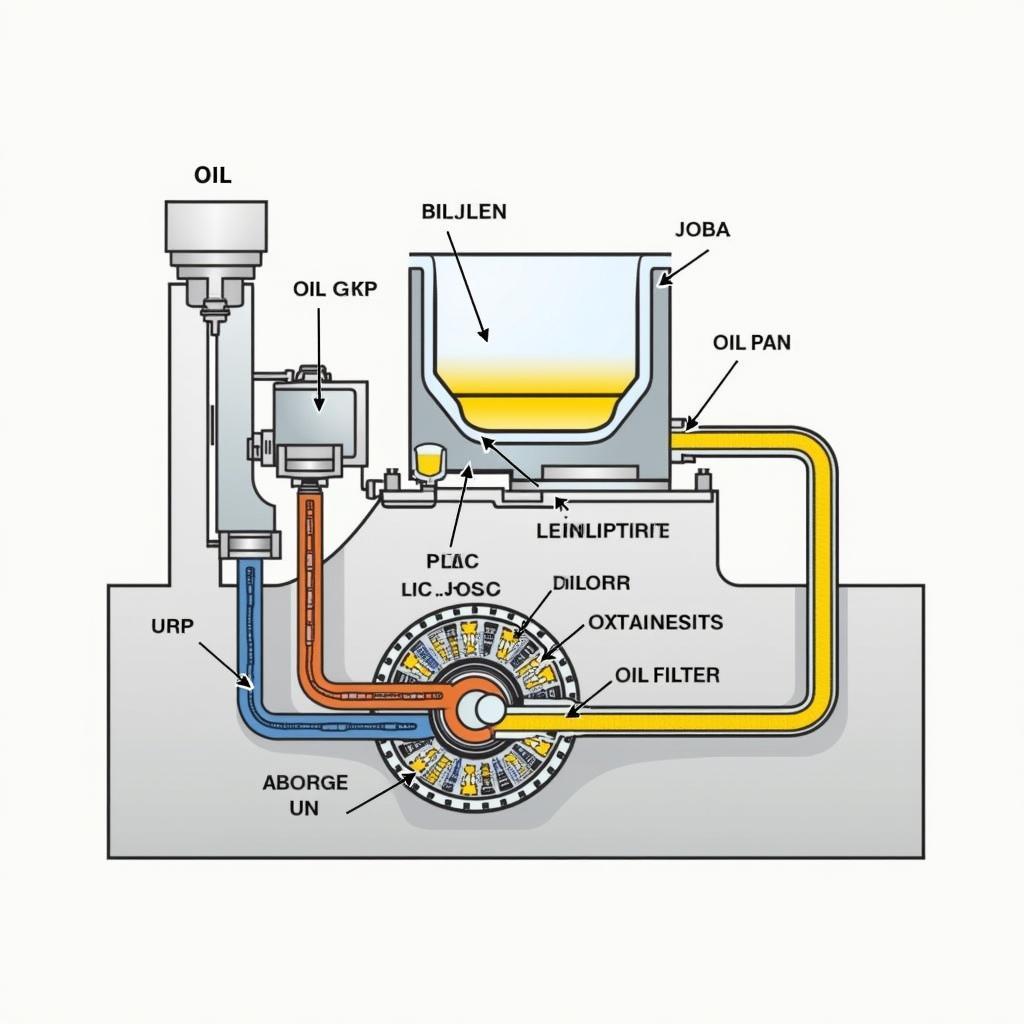The oil pump for the central oil supply – a small but essential component crucial for the smooth functioning of every internal combustion engine. Without it, the engine would quickly overheat and suffer irreparable damage. In this article, you will learn everything important about the oil pump, its function, potential problems, and solutions.
What Does “Oil Pump for Central Oil Supply” Mean?
The term “oil pump for central oil supply” describes the pump that circulates engine oil under pressure throughout the entire engine. It ensures that all moving parts, from the crankshaft bearings to the valve lifters, are adequately lubricated. This minimizes friction, cools the engine, and protects it from wear. From the perspective of an automotive technician, the oil pump is the heart of the lubrication system and therefore crucial for the engine’s lifespan. Economically speaking, a functioning oil pump means lower repair costs and a higher resale value for the vehicle.
How the Oil Pump Works
The oil pump draws engine oil from the oil pan and pumps it under pressure through the oil filter. The oil filter cleans the oil of dirt particles and debris. Subsequently, the cleaned oil is distributed through the oil passages to the various lubrication points in the engine. The central oil supply ensures that all components are supplied with oil evenly.
 Diagram showing car engine oil pump function and oil flow path
Diagram showing car engine oil pump function and oil flow path
Problems with the Oil Pump and Their Solutions
A typical problem is oil pump failure. This can be caused by wear, low oil level, or contamination in the oil. Symptoms of a faulty oil pump include low oil pressure, unusual engine noises, or the oil warning light on the dashboard. “Regular oil changes and using the correct type of oil are crucial for the oil pump’s lifespan,” says automotive expert Hans Müller in his book “Engine Care for Dummies.” In case of failure, the oil pump usually needs to be replaced.
Benefits of a Functioning Oil Pump
An intact oil pump ensures optimal engine lubrication and cooling. This leads to a longer engine lifespan, lower fuel consumption, and reduced emissions. Furthermore, engine operation becomes smoother and less prone to vibrations.
Common Questions About the Oil Pump
- How often should the oil pump be maintained?
- What are the signs of a faulty oil pump?
- Which oil is suitable for my oil pump?
- Can I replace the oil pump myself?
Oil Supply Systems Compared
Besides the central oil supply, there are other systems, such as dry sump lubrication, primarily used in high-performance engines. However, the central oil supply is the most common method and is characterized by its simple and reliable design. “While dry sump lubrication offers advantages in extreme driving situations, it is usually unnecessary for the average passenger car driver,” explains Dr. Ing. Franz Schmidt, an expert in vehicle technology.
Further Engine Maintenance Tips
Besides the oil pump, other components also play an important role in engine health. Regular inspections, using quality engine oil, and avoiding short trips contribute to the engine’s longevity.
Need Assistance?
Are you having problems with your oil pump or other parts of your vehicle? Our experts at autorepairaid.com are available 24/7 to assist you. Contact us for professional advice and repair.
Related Topics on autorepairaid.com:
- Engine Oil Comparison
- Changing Your Oil Filter: Step-by-Step Guide
- Preventing Engine Damage
Conclusion
The oil pump for the central oil supply is an indispensable component of every internal combustion engine. Regular maintenance and using the correct oil are crucial for its function and the engine’s lifespan. If you have problems with the oil pump, you should contact a professional. Visit autorepairaid.com for more information and professional support regarding car repair.
